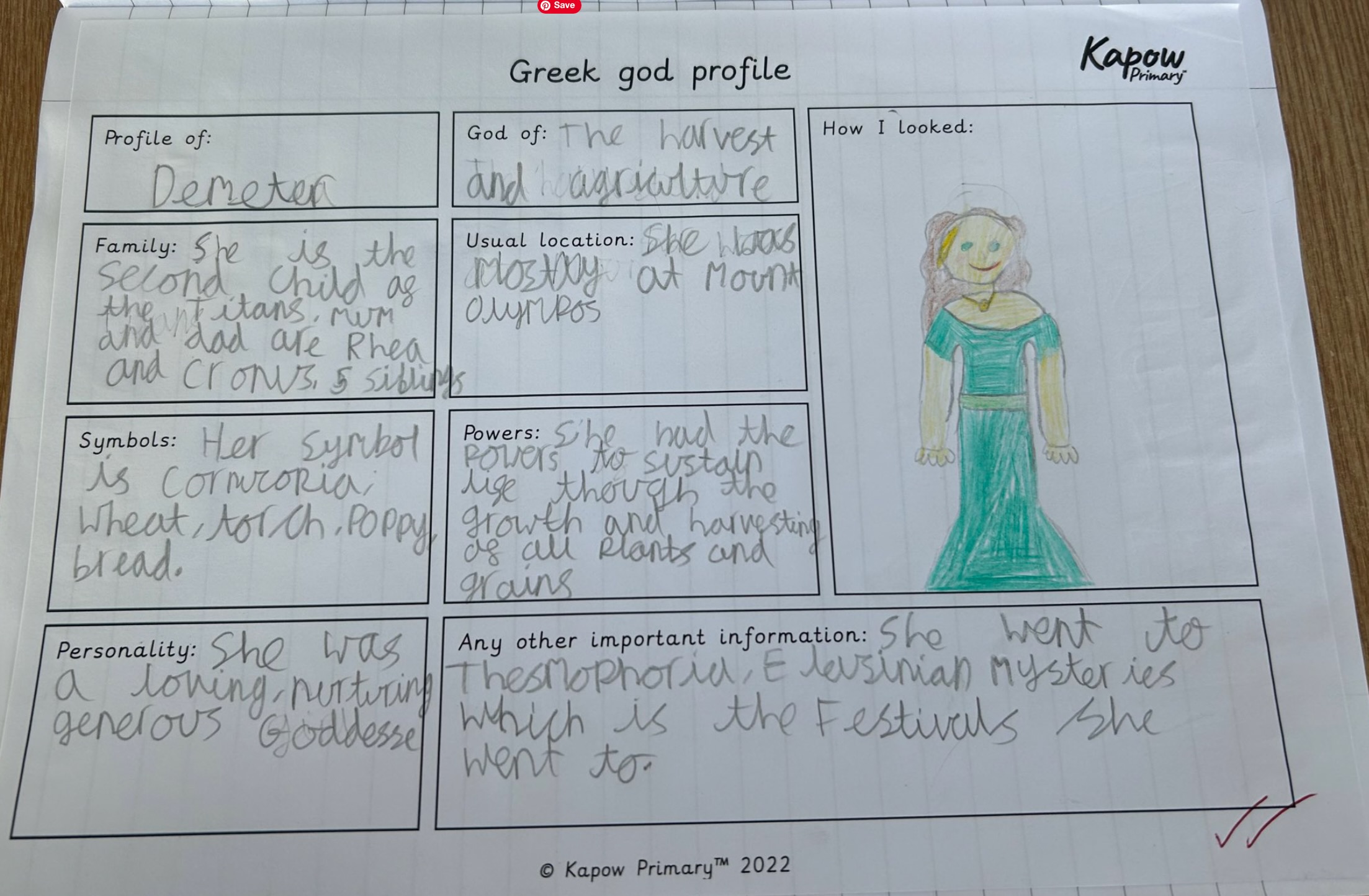Learning objective
- To identify ancient Greek beliefs by exploring their gods and goddesses.
Success criteria
- I can explore
This content is for subscribers only. Join for access today.
National curriculum
History
Pupils should:
-
This content is for subscribers only. Join for access today.
Cross-curricular links
English
Spoken language
This content is for subscribers only. Join for access today.
Before the lesson
This content is for subscribers only. Join for access today.
Lesson plan
Recap and recall
Hand out whiteboards and pens (one between two) and use the Presentation: Brain dump to prompt the children to write down everything they can remember about where and when the ancient Greeks lived.
This content is for subscribers only. Join for access today.
Extended-mode explainer videos
How to extend your display to view the lesson page and preseantion mode simultaneously. Choose your operating system below to watch the video
If you need further support with extending your display,
please contact [email protected].
Extended-mode explainer video: For Mac
Extended-mode explainer video: For Windows
Adaptive teaching
Pupils needing extra support
Could use the Activity: Support: Greek god profile in the Main event; can focus on drawing the Greek god and identifying their symbol.
Pupils working at greater depth
Could create a second profile; could consider which of the gods and goddesses were most important to ancient Greeks; could consider what their gods and goddesses suggest about the lives of ancient Greeks.
This content is for subscribers only. Join for access today.
Assessing progress and understanding
Pupils with secure understanding indicated by: making deductions about primary
This content is for subscribers only. Join for access today.
Vocabulary definitions
-
Aphrodite
The goddess of love and beauty and the daughter of Zeus.
-
Apollo
The god of music, knowledge, truth and healing and the son of Zeus.
This content is for subscribers only. Join for access today.
Example work

Dalton St Marys CE Primary School, Dalton in Furness, Cumbria

Dalton St Marys CE Primary School, Dalton in Furness, Cumbria
This content is for subscribers only. Join for access today.
In this unit
Assessment - History Y5: What is the legacy of the ancient Greek civilisation?
Lesson 1: Who were the ancient Greeks and when did they live?
Lesson 2: Who lived on Mount Olympus?
Lesson 3: How was Ancient Greece governed?
Lesson 4: Did the ancient Greeks give us democracy?
Lesson 5: How do the ancient Greek philosophers influence us today?
Lesson 6: What is the legacy of the ancient Greeks?

